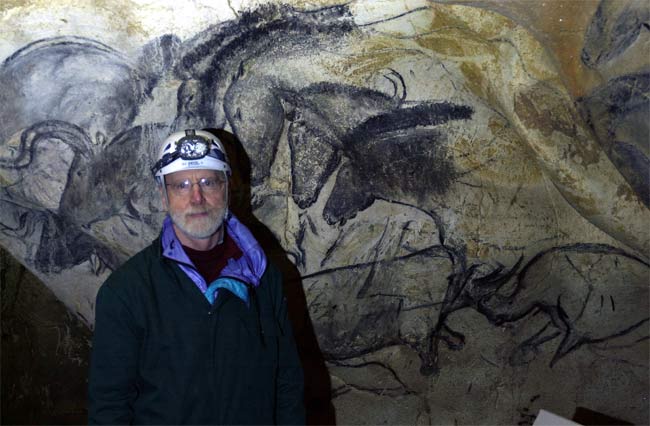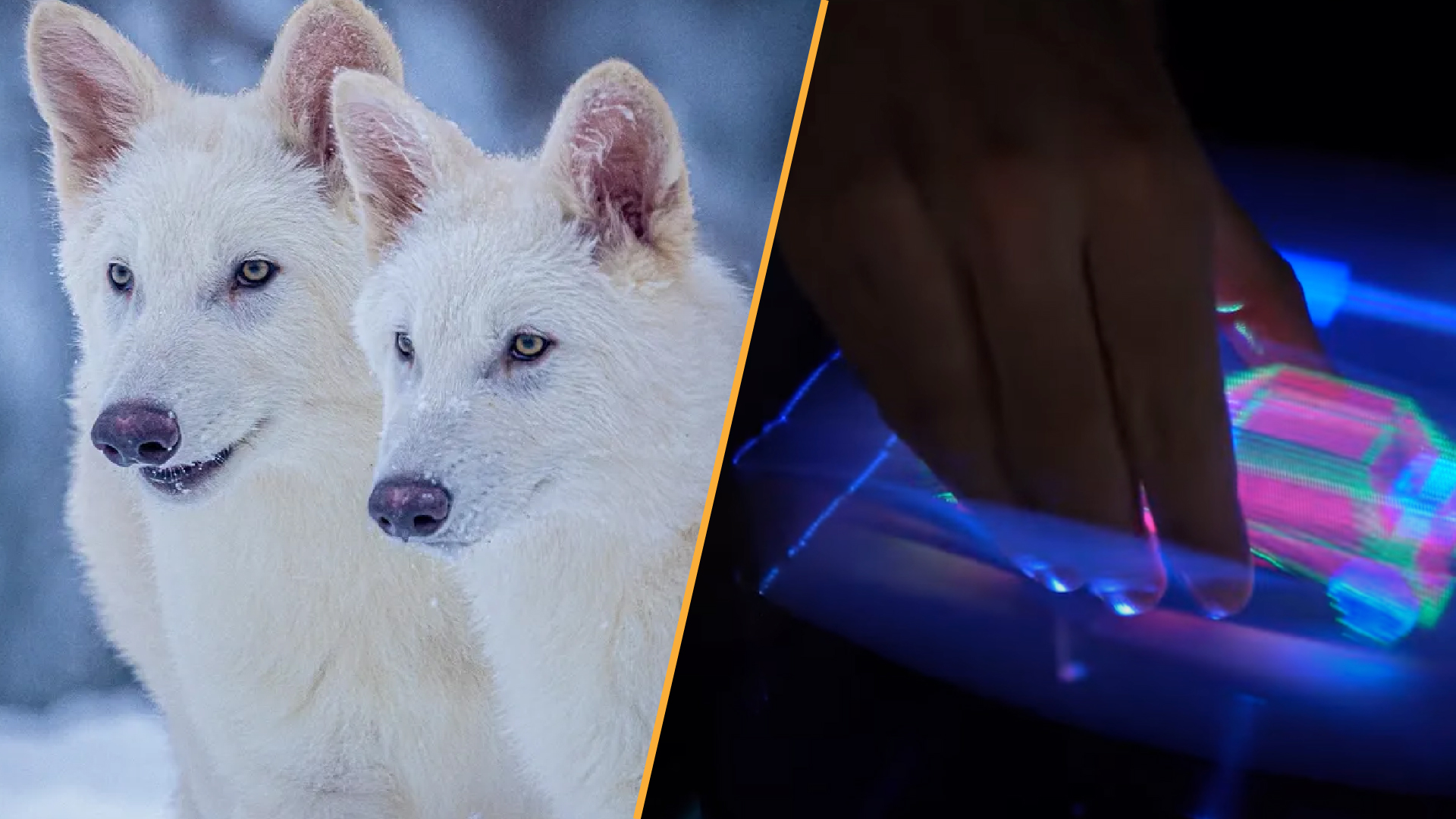Ancient Cave Art Full of Teenage Graffiti

Many art historians and anthropologists believe Paleolithic cave wall art was done by accomplished shaman-artists, but mixed in with the finer paintings are graffiti-like scenes of sex and hunting.
An analysis of thousands of paintings from the late Pleistocene epoch suggests the graffiti artists back then were likely the same as today—teenage males.
Most cave art from 10,000 to 35,000 years ago was done by hand, quite literally. Artists would chew up a bit of red ocher, place their hand against a wall, and spit over their hand.
"It was like kids taking a pencil and drawing an outline around their hand," said Dale Guthrie, a paleobiologist from the University of Alaska Fairbanks.
Men and women have different hand proportions—men have thicker thumbs and palms—so by analyzing the dimensions of the hands in European cave art, and comparing them to 1,000 photocopies of modern hands of men and women of different ages, Guthrie determined just who painted what.
Men and women and boys and girls of all ages left their marks but, statistically, teenage males dominated, contrary to popular belief.
Most of the paintings are of large game, such as bison, horse, ibex, and red deer. Cave bears and lions, which would have inspired fear, were also depicted.
Sign up for the Live Science daily newsletter now
Get the world’s most fascinating discoveries delivered straight to your inbox.
Many of the hunting scenes, although sloppily done compared to the fine, finished work of an adult artist back then, are full of graphic detail.
"Lots of the wild animals in the caves have spears in them and blood coming out of their mouths and everything that a hunter would be familiar with," Guthrie told LiveScience. "These were the Ferraris and football games of their time. They painted what was on their minds."
And as with modern teenagers, the ancients had more on their minds than just cars and sports.
"In the graffiti, there is a lot of below-the-belt-art," Guthrie said. "The people in the art are predominantly women, and not a single one has any clothes on."
But these weren't just any women, they were Pleistocene Pamela Andersons adorned with ludicrously huge breasts and hips. The walls were also decorated with graphic depictions of genitalia.
"These were not the type of paintings that make it into the coffee table art books," Guthrie said.
While female artists accounted for less than 20 percent of the cave art, they were being creative in other ways, researchers say.
"What we find in the fossil record doesn't always represent what was going on," Guthrie said. "Prior to the pottery age, women in all societies are working in things that don't preserve very well, such as skins and braiding fiber."
Guthrie presents his findings and more than 3,000 images in his new book, "The Nature of Paleolithic Art" (University of Chicago Press, 2006).
- The Biggest Popular Myths
- Pleistocene Park Could Solve Mystery of Mammoth's Extinction
- New Digital Brush Makes the World Your Palette
- Mona Lisa Was 83 Percent Happy










